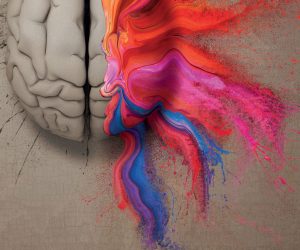Hosted by the School of the Built Environment
Date and time: Wednesday 10 October 2018, 18.30 – 20.00 (doors open at 18.00)
Location: G01, Building LO22, London Road campus
The event is free to attend, however, we recommend booking early as places are limited.
Please email architecture@reading.ac.uk to book a place.
Speakers: Nicola Gillen (Director and Global Practice Leader, Strategy Plus at AECOM) and Andrew Laing PhD (Principal of Andrew Laing Consulting LLC and Visiting Lecturer at Princeton University, School of Architecture)
Work and the future office – Nicola Gillen
Nicola is the European Practice Lead for Strategy Plus at AECOM. She also leads the Pharmaceutical, Technology, FMCG and Learning Sectors for Strategy Plus in the UK. Strategy services include; Strategic Briefing, Workplace Strategy, Research, Concept Design and Change Management. Nicola joined AECOM (legacy DEGW) in 1998 as a strategic consultant. Now based in London, Nicola has also worked in the New York office of DEGW. Recent publications she has authored/co-authored include Technology, Media and Communications, written for the BCO, and Productivity: A Homemade Recipe?, a white paper published by AECOM.
Drawing from the forthcoming RIBA book ‘Future Office: Next-generation workplace design’, in this lecture lead author Nicola Gillen will explore disruptors in the world of work, design process and practice to look at how and where we will work in the future.
Work and the city: directions for change – Andrew Laing
Andrew Laing, PhD. is a consultant and researcher in workplace strategy, design and urbanism. He was the global practice leader for the Strategy Plus practice at AECOM (formerly DEGW). Laing set up the DEGW practice in New York in 1998, having worked with DEGW in London since 1989. He has written many articles on workplace design and authored New Environments for Working (1997) with DEGW founder and Princeton graduate Francis Duffy, and was the co-author of The Responsible Workplace (1993). Laing’s clients have included many organizations interested in workplace innovation and information technology, such as Accenture, Google, Microsoft, Nike, and the United Nations. His interests span the changing worlds of work, technology and the design of places at multiple scales from the workplace to the urban. Much of his work has focused on the implications of new ways of working for the design of buildings, the nature of place, sustainability, and the city. He is interested in exploring the impact of information technology on the design of places and the city.
In this lecture, Andrew Laing will explore the history of ideas about work, technology and the city, from DEGW’s pioneering research on intelligent buildings, the distributed workplace, and Frank Duffy’s seminal book Work and the City, and look at the emerging directions of change in work, technology and the city. How is the thinking on technology and cities altering our ways of understanding places? What are the implications for new ways of programming, designing and using the city?
The DEGW archive will be available to view before the lecture in the Museum of English Rural Life (opening times for exhibition 17.00-18.30).

